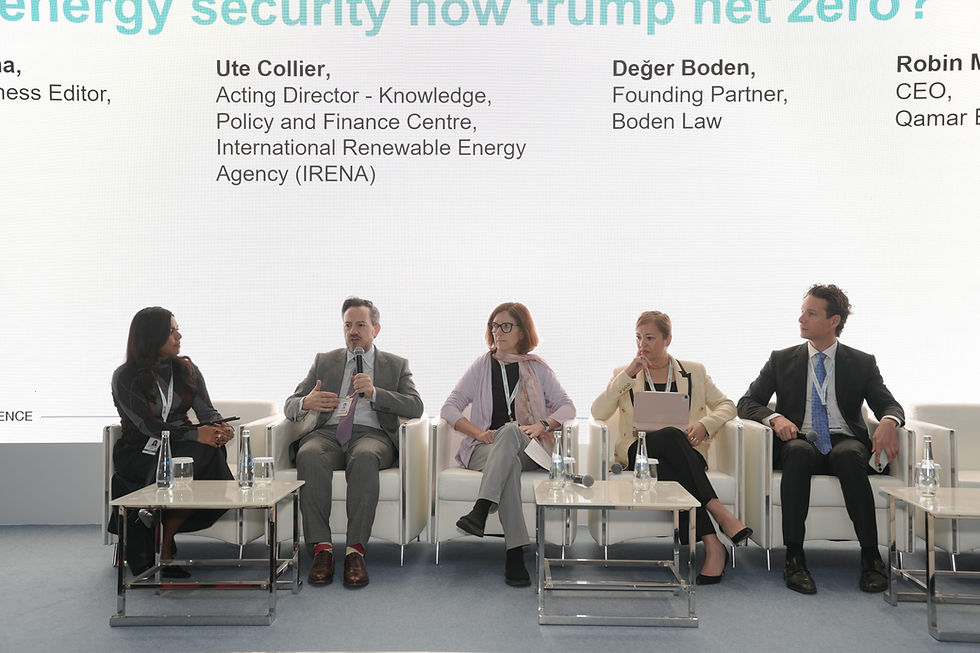Jeffrey Beyer speaks on the rise of sustainable finance at Middle East Energy
- Jeffrey Beyer

- Mar 8, 2022
- 1 min read
Jeffrey Beyer, Managing Director of Zest Associates spoke on the future of sustainable finance in the gulf region at the Global Energy & Utilities Forum on March 8th.

The event was a part of Middle East Energy's three-day conference that brought together experts and stakeholders from the energy community to discuss pathways towards a global energy transition.
Jeffrey drew upon the work that Zest is delivering with HSBC and the Mohammed bin Rashid School of Government on Financing a Green Transition in the Middle East. He discussed the importance of taxonomies in mobilising capital towards green and responsible investments, but cautioned against them being considered a panacea.
“Taxonomies create a common language, bring security to investors, help avoid greenwashing, avoid market fragmentation and encourage interoperability of the financial sector,” Jeffrey explained. “But these systems have drawbacks too, with two-thirds of emissions coming from non-publicly listed companies that escape the taxonomy. They also may deprive capital markets of owning polluting companies and managing their emissions, and may push polluting companies into private funds where they disappear from scrutiny.”
Jeffrey also discussed the special role of public procurement and State-Owned Enterprises in the Middle East region. Public spending in the GCC countries plus Egypt and Iraq represents 20% of GDP on average, with a high of 28% in Saudi Arabia, compared to an average of just 17% globally.
“This spending highlights the importance and potential influence of sustainable public procurement, which can have a catalytic effect in sustainability markets,” said Jeffrey. State-Owned Enterprises also have a major role as they often represent a major portion of countries' emissions, and their state-influenced governance can be leveraged to pursue the government's strategic decarbonisation objectives.


Comments